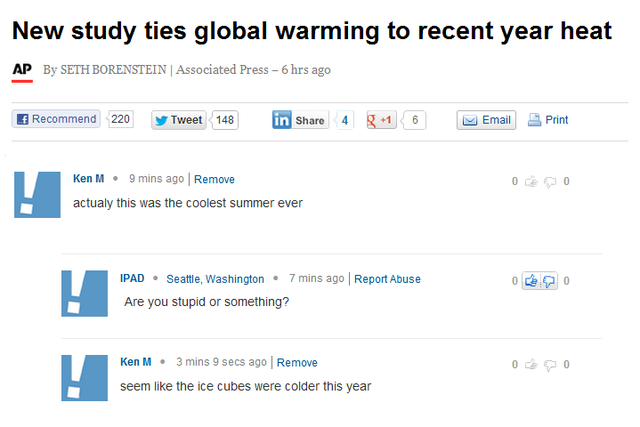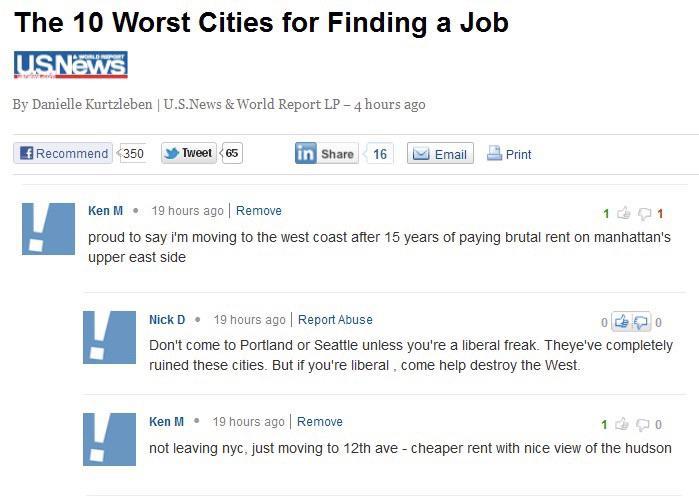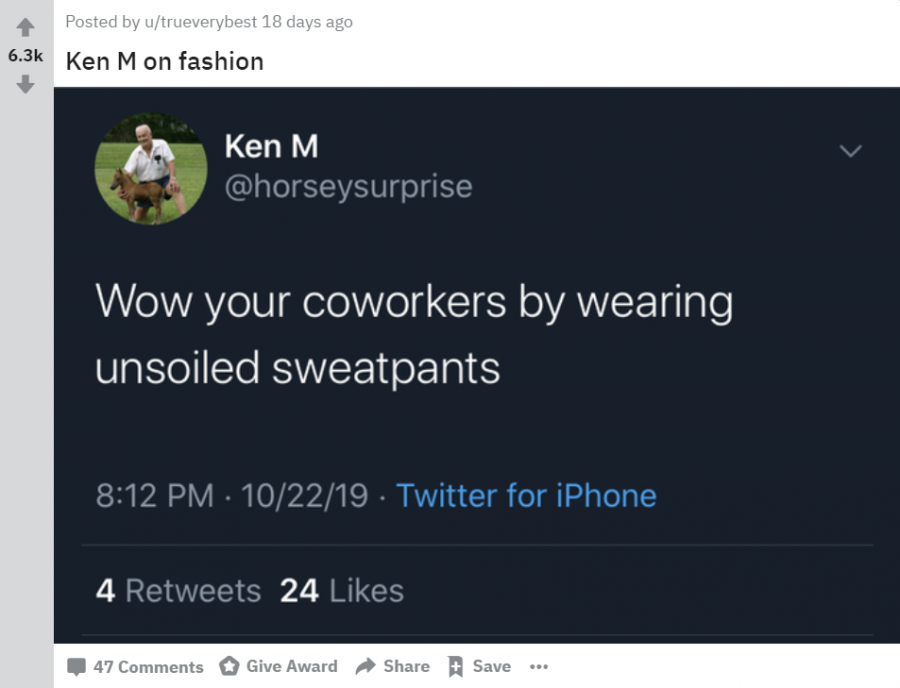
Ken M and wholesome trolling
Internet trolls have been around for roughly thirty years now, and most people try to avoid them. But trolling does not always have to be bad. The online celebrity who calls himself Ken M is an example of this. This paper analyses what it actually means to be an internet troll, how Ken M fits into this category, and what this all means for online communities.
Trolling: positive or negative?
The Internet is full of all kinds of great things: information, communities, memes, and much more. Still, there is also a dark and negative side to it too. We often associate Internet trolls with this "dark side" of the Internet. Trolls disrupt online conversations through off-topic or inflammatory comments. “Don’t read the comments” is a tip used often to urge people to avoid potentially aggressive and generally unpleasant online interactions. But one person whose trolling comments people often actually want to read is Ken M, a character who has become an online phenomenon known for his witty and cynical comments on social media platforms.
Figure 1: Google News results 'Ken M'
But if we associate the term "troll" with something negative, how can we celebrate a person that we see as the best troll around? Could there be a positive side to his online trolling, and how does this influence the interactions on social media platforms? Ken M’s posts and comments are interesting and unique examples of wholesome Internet trolling.
Who is Ken M?
Kenneth McCarthy, a Brooklyn-based copywriter for Comedy Central, started as an anonymous Internet troll who is now considered by some the world's greatest of his kind. He calls his way of trolling "bringing a banana to a gunfight.” He is especially known for his comments on websites such as Yahoo! and The Huffington Post. Ken M’s trolling is not aimed at provoking readers or insulting others for his amusement, but he aims to “turn a toxic space into a source of belly laughter.”

Figure 2: Ken M on Yahoo!
Figure 3: Ken M on Twitter
Ken M describes himself as a news junkie. He used to leave sincere comments on news articles and in other forums, but hardly anyone responded reasonably. In April 2011, McCarthy began leaving satirical comments on posts in the newsfeed of Yahoo News as a passive-aggressive way to cope with his frustration. Soon, Internet comedy company College Humor even offered him a column in which to post as Ken M, but professionally: he was paid to be an Internet troll. Even though the column has now been discontinued, he is still active on multiple social media platforms such as Twitter and Tumblr. With his "no-harm-intended" comments, he has reached many people. He was named one of the most influential people on the Internet by Time Magazine in 2016, and his fans even created a subreddit, An ode to Ken M, which currently has almost 500.000 members. One Redditor even released a Chrome extension to copy Ken M’s witty posts straight to your clipboard.
Ken M’s social media avatars mostly portray old men, or just use the default image of the social media platform. Even though his personality is visible, he keeps himself anonymous by concealing his appearance.
How does Ken M belong to the Internet trolls?
So what exactly is an online troll? Online trolling is often understood as the act of creating discord on the Internet by upsetting people and starting quarrels through posting mean or off-topic messages in an online community or platform. A social media troll purposely says something shocking or controversial to upset or get a reaction out of other users. A prominent source of trolling is YouTube. On most comment threads there, you’ll find people saying that the video sucks, people commenting on someone’s appearance, or others yet insulting the people that disliked the video. But it is not only YouTube that hosts online trolls; trolling also occurs on other social media platforms, such as Facebook, Instagram, and Twitter.
A generic definition of trolling by the trolls themselves could be as follows: “a phenomenon online where an individual baits and provokes other group members, often with the result of drawing them into fruitless argument and diverting attention from the stated purposes of the group” (Herring, Job-Sluder, Scheckler & Barab, 2002). The use of the word "troll" to refer to individuals who try to provoke others may have originated in the US military in the 1960s - before the realization of the Internet for mass communication. The term was purportedly used by US Navy pilots in Vietnam in their "dog-fighting", the act of trying to provoke opposing fighter pilots. Others have argued that the term troll derived from the Scandinavian tradition of trolls as horrendous creatures that lurked under bridges, just like an internet troll would lurk in the background ready to "attack" unsuspected users.
It is believed that trolling on the public Internet came into being in the late 1980s or early 1990s on a website called alt.folklore.urban, where it was mostly about new users replying and exposing themselves to ridicule. Experienced users would troll new members by asking overly naive questions, or by making new posts about topics that have been way over-discussed.
Trolling is a broad phenomenon and in some cases it may be purely benevolent.
How does Ken M fit into this category of Internet trolls? The definitions mentioned above do not match Ken M’s so-called "wholesome trolling". But researcher and writer Jonathan Bishop (2014) argues that there is a difference between those who troll to harm, who could be called "flame trollers", and those who post constructively to help others, called "kudos trollers". A "flame" is a negative or insulting message that is directed at users in online communities. A "kudos" on the other hand, can be seen as a message that is posted in good faith, intended to be constructive and to entertain others. A message in this context can be any form of electronic communication. So, kudos trolling may be based on transgressive humor, although not exclusively. What may be offensive to one person may be entertaining to another. But one could consistently consider trolling "newbies" a form of flame trolling, as it encourages flaming by the novice; accordingly, cases of less troublesome trolling, such as a situation where two members mutually try to get the better of each other peacefully, could be seen as kudos trolling.
Bishop (2014) presents different troll character types within the spectrum of trolling, and many of them overlap or co-occur: trolling individuals may aim to expose people’s genuine evil nature, hurt others to entertain themselves, wind up new members, self-deprecate to elicit sympathy from others and distort numerical data. But trolls may also help others socialize, amuse others by sharing made-up humorous content, and entertain others through mischief. This indicates that trolling is a broad phenomenon and in some cases it may be purely benevolent.
If we now go back to Ken M, we can conclude that he is indeed an internet troll. Ken M himself has argued that “the term ["Internet troll"] has been expanded so widely that it’s beginning to lose its meaning”, but he can be described as a kudos troller, according to Bishop’s categorization. McCarthy did not begin trolling intentionally, but started commenting erratically in an attempt to dispel toxicity online. This already shows that his intentions should not be considered bad or insulting - it's all about his and others’ entertainment.

Figure 4: Ken M on Yahoo!
In the figure above, we can see that Ken M is not trying to insult the other user in the conversation. He does not mean anyone any harm, but only provides entertainment for himself and others.
Forming a community through trolling
Since Ken M is such a popular online figure, he now has a Reddit page dedicated to him. On this page, people share threads that include comments by the famous Internet troll, or posts from his social media.

Figure 5: Ken M's Twitter post on his subreddit
Other Reddit users and community members often discuss, continue the joke, or laugh about the post in the comments. Reddit, the self-proclaimed “front page of the Internet”, enables the sharing of original and reposted content from around the web. It is well-known for its accessibility, its easy usage and the way facilitates communication between many people. The platform is quite similar to a forum. Through Reddit, Ken M fans stay connected to each other and to their idol and what he does.
An important aspect of Reddit relates to human agency: “users retain significant agency in the process of steering programmability not only through their own contributions, but also because they may resist coded instructions or defy protocols” (van Dijck & Poell, 2013). Reddit lets its users post comments or links to topics they find important. The site thus grants more power to its users than, say, Facebook or Twitter in terms of giving attention to a topic, for example, through various posts. Therefore, Reddit is the perfect place for an online community that is based around an Internet troll. Without the platform itself interfering, users can enjoy each other’s company online.
Ken M tries to make the Internet a happier, more wholesome space, and he definitely achieves this (indirectly) through his dedicated subreddit.
How can one online personality become such an idol and create such an online following that constructs an online community? By “online community” we mean a virtual space where people come together with others to converse, learn, exchange information, play, or just to be with each other. A common feature of online communities is the ongoing interactions among people.
For Reddit, the interaction between members is an important aspect of its success. Online communities provide their members with new information, companionship, social support, and entertainment. Ken M tries to make the Internet a happier, more wholesome space, and he definitely achieves this (indirectly) through his dedicated subreddit. Members of the subreddit can interact with each other, make friends, laugh together, and learn new things together. The act of sharing a simple screenshots of some comment made by McCarthy can lead to multiple new and interesting conversations. As you can see in the figure above, a screenshot of a tweet by Ken M already has more than 40 comments.
Online communities break the barriers of time, space and scale that would limit offline interactions. Even if people are not able to physically go anywhere, they are still able to interact with other people online whenever they need to. Through their interest in one person, people are able to socialize with other people they would not normally encounter offline. If they enjoy the same things (say, the same jokes), they can get together and laugh about the same things.
Internet trolls can be the good guys
As it turns out, Internet trolls don’t have to be that bad after all. Next to flame trollers, who consciously try to insult or upset people with their comments, there are also kudos trollers like Ken M. Their goals include entertainment and positive socializing. There will always be negative aspects to the Internet, but its technology has also given us many exciting opportunities. The ability to form online communities is one of those benefits. The online Reddit community that is based around Ken M’s comments, for example, consists of people who share the same sense of humor and who can interact with each other. Since Reddit leaves a big part of the power to its users, the Ken M community can grow and develop itself. Even though there are still Internet trolls out there who do not have the same good intentions as McCarthy, instead of advising everyone to “not read the comments”, it might be time for us to start noticing the positive ones.
References
Bishop, J. (2014). Representations of ‘trolls’ in mass media communication: A review of media-texts and moral panics relating to ‘internet trolling’. International Journal of Web-Based Communities.
Bryan, C. (2018). Ken M and the lost art of “do no harm” trolling. Mashable, (22 October 2018).
Dynel, M. 2016. “Trolling is not stupid”: Internet trolling as the art of deception serving entertainment. Intercultural Pragmatics, 13(3).
Herring, S., Job-Sluder, K., Scheckler, R. & Barab, S. (2002). Searching for Safety Online: Managing "Trolling" in a Feminist Forum. The Information Society.
Kraut, R., Resnick, P., & Kiesler, S. (2011). Building successful online communities: Evidence-based social design. Cambridge, MA: MIT Press.
Phillips, W. (2015). This is why we can't have nice things: Mapping the relationship between online trolling and mainstream culture (The information society series). Cambridge, MA: MIT Press.
van Dijck, J., & Poell, T. (2013). Understanding Social Media Logic. Media and Communication, 1(1), 2-14.